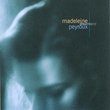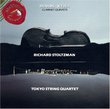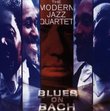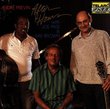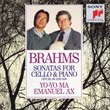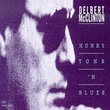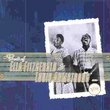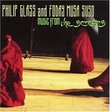| All Artists: Nikolay Andreyevich Rimsky-Korsakov, Sergey Prokofiev, Pyotr Il'yich Tchaikovsky, Johann Sebastian Bach, Wolfgang Amadeus Mozart Title: Piano Transcriptions / Arcadi Volodos Members Wishing: 0 Total Copies: 0 Label: Sony Release Date: 7/1/1997 Genres: Pop, Classical Styles: Vocal Pop, Opera & Classical Vocal, Chamber Music, Forms & Genres, Sonatas, Historical Periods, Baroque (c.1600-1750), Classical (c.1770-1830), Modern, 20th, & 21st Century, Symphonies Number of Discs: 1 SwapaCD Credits: 1 UPC: 074646269121 |
Search - Nikolay Andreyevich Rimsky-Korsakov, Sergey Prokofiev, Pyotr Il'yich Tchaikovsky :: Piano Transcriptions / Arcadi Volodos
 | Nikolay Andreyevich Rimsky-Korsakov, Sergey Prokofiev, Pyotr Il'yich Tchaikovsky Piano Transcriptions / Arcadi Volodos Genres: Pop, Classical
Face it, anyone who can play Horowitz's fabled transcriptions or Cziffra's madcap interlocking octaves Flight of the Bumblebee will get attention. What is most impressive, though, is that Arcadi Volodos replicates the note... more » |
Larger Image |
CD DetailsSynopsis
Amazon.com Face it, anyone who can play Horowitz's fabled transcriptions or Cziffra's madcap interlocking octaves Flight of the Bumblebee will get attention. What is most impressive, though, is that Arcadi Volodos replicates the notes, but not the performances. His tempos and voicings are completely different, and just as valid, if not quite as coruscating as the originals. In other words, Volodos makes this repertoire his own, as well as the other selections on this well-recorded debut outing. --Jed Distler Similarly Requested CDs
|
CD ReviewsHeir to Horowitz? No, a Genius in His Own Right Sugi Sorensen | La Canada, CA USA | 02/18/2000 (5 out of 5 stars) "This recording is simply stupendous. The accolades heaped here in these reviews and elsewhere are all deserved. Although I guess it's inevitable that he be compared to Horowitz (after all, in both CDs released so far he plays Horowitz transcriptions), I contend Volodos is worthy of praise in his own right. His technique is mind-boggling. Even more stupendous is his phrasing and interpretation. By this measure he departs measurably from Horowitz, who achieved velocity at the expense of accuracy and phrasing. It can even be said that Horowitz lacked warmth in many of his recordings, favoring virtuosity instead. The same cannot be said of Volodos. Consider the Bach Largo on this disc, and the three Prokofiev Cinderella pieces for instance. Volodos uncovers depths previously undiscovered in recordings by Richter, Sandor, Ortiz, Berman, and Chiu, and even in the Orchestral version. That he brings new meaning to 'old' music is testament to his maturity and understanding. That he can transcribe a simple melody such as Mozart's Rondo Alla Turca into a spellbinding yet reverent virtuoso piece is proof he's a genius. I sense this will be forever regarded as one of the greatest debut albums." Horowitz, Cziffra - and now Volodos. Sugi Sorensen | 09/16/1998 (5 out of 5 stars) "Anyone who records Horowitz's "Carmen Variations" and Cziffra's "Flight of the Bumblebee" (after Rimsky-Korsakov) has to be either lamentably deluded or a virtuoso of the very, very first rank. The latter case is breathtakingly demonstrated in this wonderful CD. The Romantic School of Pianism is alive and well, thank you! Volodos also plays transcriptions of his own: two Rachmaninoff songs and the famous Mozart "Rondo alla Turca", both in the best tradition of the giants he is emulating so successfully. Little-known, but fascinating transcriptions by Feinberg (Bach and Tchaikovsky) will probably be new to almost everybody. I am sure we will hear much more of Arcadi Volodos in the future; I can only recommend most strongly that you hear him now." Volodos -- Best Natural Technique and Most Musical Pianist! Sugi Sorensen | 10/22/2003 (5 out of 5 stars) "I agree with most of the superlatives regarding Volodos with one exception. I don't think Cziffra, with all due respect, is in the same league as Rachmaninoff, Horowitz, Richter, Hofmann, Solomon, and a few other truly superlative pianists. For one thing, Cziffra wasn't very musical. His fingers were fast, but that's about it, despite the hoopla on the DVD/Video, The Art of the Piano. He was perhaps featured because like a couple of the mid-level commentators on the DVD/Video, Cziffra was Hungarian. His playing was at best, very good. At it's worst, unlistenable. With Volodos, you have a truly unlimited piano maestro. His technical ability is at the highest rank. His musical quality, also of the highest rank. In short, he has no limit in talent. Rumor has it he is a bit undisciplined and cancels concerts a lot. I hope he avoids the plague of some great artists -- getting lost in their own fame and ability so much they self-destruct. Van Cliburn was a great pianist as a young man. After becoming famous for being famous, his skills (limited by a limited repertoire) declined to the point that he embarassed himself this summer while trying to play piano at the Aspen Music Festival. Would like to see Volodos come out with a DVD of live piano playing. I own all of Volodos' CDs and have even given them to friends as presents. My only caveat with Volodos is that he sometimes chooses novel, yet boring repertoire. This is true mostly in his Carnegie Hall CD, which should be purchased if only for the first track where Volodos plays the most electrifyingly wonderful Hungarian Rhapsody. This CD here, the Piano Transcriptions, is perhaps his best. There are a number of wonderful tracks, e.g. the Hungarian Rhapsody No.2 What was that crazy person talking about when he critiqued THE BEST Hungarian Rhapsody No.2 interpretation??? Volodos's Schubert is wonderful music for a relaxing experience. Young master, give us more CDs, a few DVDs of live playing, and many live performances. Don't self-destruct before the world knows who you are. A wonderful artist can be a fairly normal person: e.g. the great William Kapell and Artur Rubinstein. Rachmaninoff, albeit depressed, was a total professional. Be a professional and let's hear more of your wonderful pianism."
|

 Track Listings (14) - Disc #1
Track Listings (14) - Disc #1
